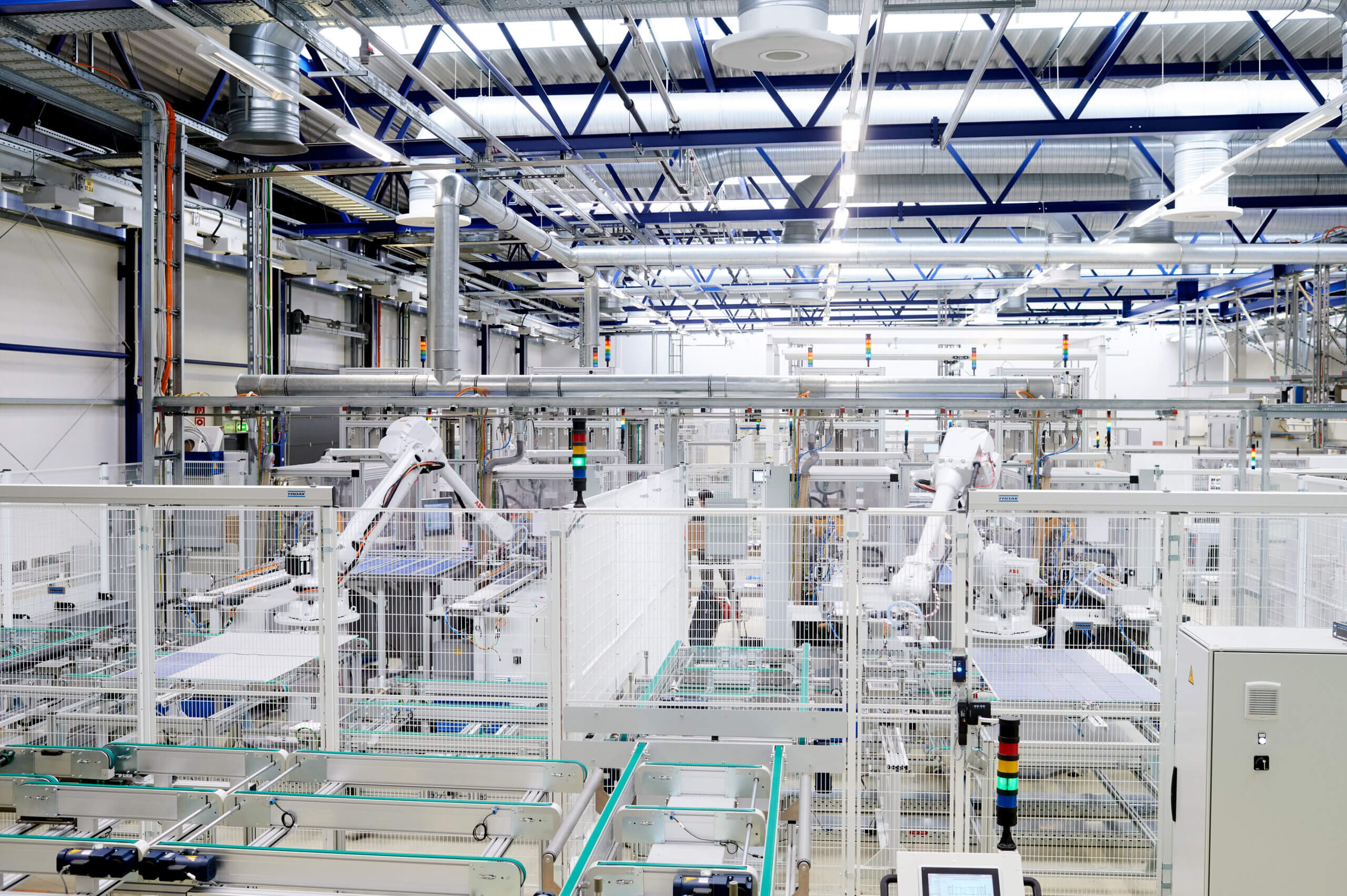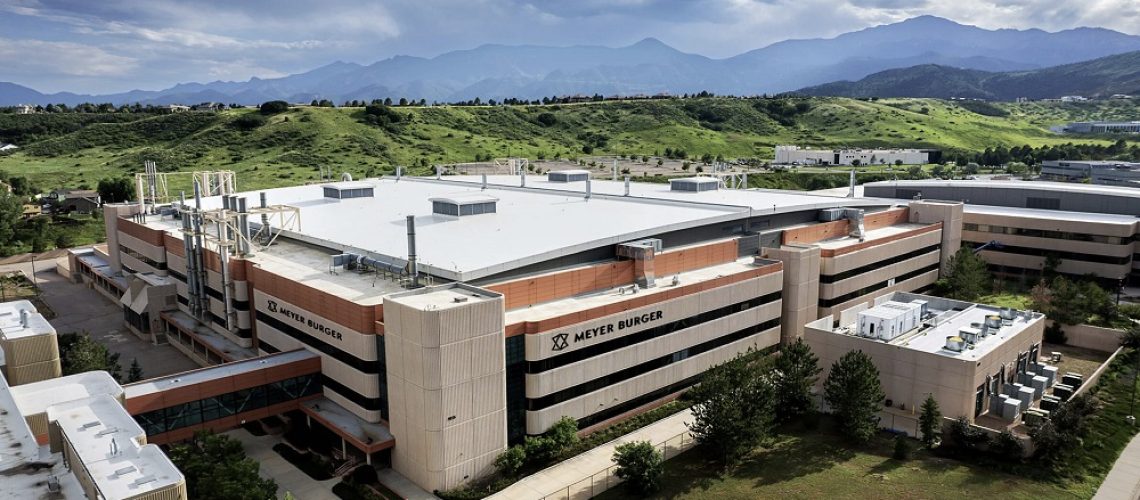The Swiss-German solar machine and module manufacturer has announced it will redirect solar cell manufacturing machines planned for Germany to Colorado in order to get the factory up by the end of 2024, which would make all of their Arizona solar modules qualify for the IRA”s “domestic content”.
Meyer Burger will construct a 2 GW per year solar cell manufacturing facility in Colorado Springs, Colorado. The facility will be used to exclusively produce solar cells to feed the company’s Goodyear, Arizona solar module manufacturing facility.
The company also stated further expansion in the U.S. was probable. CEO Gunter Erfurt said, ”Meyer Burger is currently working on additional multi-gigawatt offtake agreements in the U.S. with new customers. We are already exploring opportunities to add further solar cell and module production capacity in the country”.
The two cities, separated by a mountain range, are a bit over 800 miles and twelve hours away. Colorado Springs is just over an hour away from the National Renewable Energy Lab in Golden, Colorado.
The manufacturer noted multiple sources of financing for the facility.
First of course, is that solar cells made in the factory are expected to qualify for the advanced manufacturing tax credit 45X, which is part of the Inflation Reduction Act (IRA). Meyer Burger says that from the end of 2024 through 2032, the company’s current manufacturing capacity at its solar cell and module factories would manufacture a cumulative sum of hardware that would be eligible for up to $1.4 billion in tax credits.
As part of the IRA, solar cells manufactured in the U.S. earn 4¢/Wdc in tax credits, while solar modules earn 7¢/Wdc in tax credits, totalling 11¢/Wdc for Meyer Burger’s hardware. At 2 GW/year for eight years (including all of 2025 through the end of 2032), a minimum of 16 GW of modules would be manufactured at the facilities.
The company noted additional funding of $90 million was provided from the city of Colorado Springs and the state of Colorado, mainly in the form of tax credits, direct support and discounted electricity and water rates. Meyer Burger said $300 million in prepayments from module offtake partners, as well as funding from the Department of Energy loan program total $300 million.
The prepayments from module offtake partners include funding to cover the operating costs of the facility, purchase price of the components that go into the modules (wafers, glass, aluminum, etc), as well as a floating price on the wafers, which protects both parties in the transaction against the volatile polysilicon market.
The company said the machines used to make the solar cells will be redirected from current plans of deploying this hardware in Germany. This was done to get the U.S. manufacturing facility up and running as fast as possible. The company was recently awarded $224 million by the European Union to develop 3.5 GW of solar cell and panel manufacturing.
Meyer Burger had previously said it was considering solar cell manufacturing in the U.S. after the Internal Revenue Service released their “domestic content” guidance on May 12 – about two and a half months ago. The guidance made clear that in order for a solar module to meet domestic content guidelines and partially qualify a project for the 10% tax credit adder, that the solar cells in the solar modules must be made in the U.S.
The company’s Arizona facility recently announced new solar module offtake agreements that have brought its annual manufacturing capacity goals to 2.0 GW/year as well. Meyer Burger’s module offtake partners include D. E. Shaw Renewable Investments, Ikea, and BayWa r.e..

Meyer Burger has also hinted that there are light talks with residential installation companies Sunrun and Sunnova, however, no other deals are announced at this time. Sunrun & Sunnova, which are primarily residential solar companies, are able to make use of the 10% tax credit adder for domestic content in the residential space – unlike actual homeowners. This is because the commercial and residential tax credits are separate laws within the Inflation Reduction Act, and the residential tax credit doesn’t offer a domestic tax credit bonus.
Thus, these two companies – and any other third party residential asset owner – have a strong business interest to sign an offtake deal for the residential module manufacturing lines in the Arizona Goodyear facility. Currently, these manufacturing lines have no signed offtake agreements in place.



